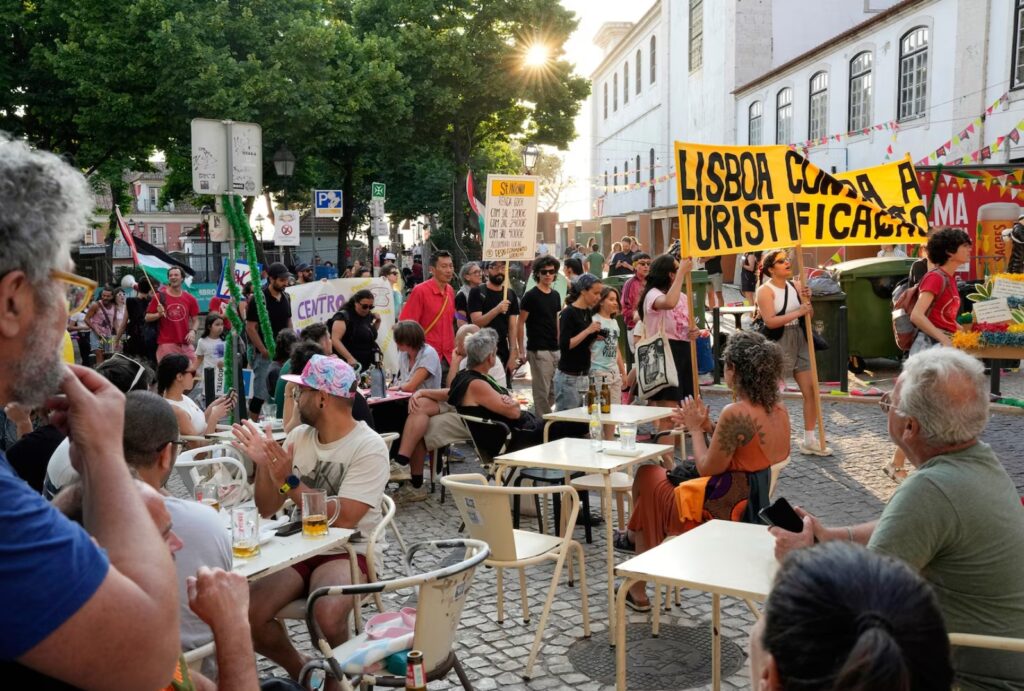Understanding Overtourism and Its Implications
Recent protests across Southern Europe have highlighted growing concerns regarding the effects of overtourism. The issues at stake not only involve environmental and urban degradation but also the socio-economic impacts on local communities. As travelers look for ways to enjoy their holidays, such developments could influence the tourism landscape and the transportation services that accompany it, such as taxis and transfers.
The WTTC’s Call for Dialogue
On June 16th, the World Travel & Tourism Council (WTTC) issued a significant statement addressing these protests, especially in countries like Italy, Portugal, and Spain. The council underscored the importance of the travel sector, noting that it is a major driver of local economies, benefiting not only large corporations but also small businesses that thrive on tourist activity.
The council also urged all stakeholders to recognize the complexities behind issues like housing shortages, arguing that attributing blame solely to tourism oversimplifies systemic problems.
Economic Contributions of Travel and Tourism
Travel and tourism generate substantial economic benefits. They create millions of jobs and foster community development by providing income from both international and domestic visitors. Specifically, tax revenues from this sector play a vital role in supporting local infrastructure, leading to improvements in public services that benefit both residents and visitors alike.
Key Contributions of the Sector:
- Job Creation: Millions rely on tourism for their livelihoods.
- Local Business Support: Small businesses, such as cafes, shops, and transport services, thrive on tourist spending.
- Infrastructure Development: Tourism-related tax revenues often help fund essential services, enhancing quality of life for residents.
Protests and Public Sentiment Regarding Overtourism
The protests, particularly noted in Barcelona, spoke volumes about public sentiment. Many locals actively voiced their frustrations, emphasizing how the influx of tourists has affected their day-to-day lives. Slogans such as “Mass tourism kills the city” rang through the streets, echoing a collective call for balance.
Demonstrations weren’t limited to Spain; neighbors in Portugal and Italy joined in as well. Cities including Lisbon, Genoa, Milan, and Venice saw similar outcries against expanded hotel constructions and facilities aimed at increasing tourism capacity.
Building a Sustainable Future for Tourism
Reinforcing the need for dialogue, the WTTC advocates for responsible tourism practices that benefit both visitors and locals, emphasizing the role of governments in addressing these concerns. As tourist demand increases, communities must find ways to adapt without compromising their cultural integrity or residents’ quality of life.
Proposed Measures to Combat Overtourism:
- Community Engagement: Involving locals in the conversation about tourism strategies to ensure their needs are considered.
- Sustainable Practices: Encouraging tourism companies to adopt practices that minimize their environmental and cultural footprint.
- Infrastructure Investment: Using tourism revenue to improve local infrastructure that serves both residents and visitors.
A Personal Journey with Sustainable Travel
While informative articles and reviews provide helpful insights, the essence of travel lies in first-hand experiences. Travelers seeking to explore new destinations will find value in platforms like LocalsRide, which enables users to book private transfers with local drivers. With options to choose specific vehicles and check ratings beforehand, it’s about making informed choices that enhance the overall travel experience.
Conclusion: The Future of Travel and Tourism
As overtourism continues to spark conversations about balancing tourism and community needs, it’s crucial to approach this issue comprehensively. The WTTC’s initiative highlights the importance of responsible practices and the potential for collaboration among stakeholders. By prioritizing transparency and engaging local communities in the tourism dialogue, a sustainable travel model can emerge.
LocalsRide.com embodies this model by offering a user-friendly solution for booking personalized transfers, ensuring travelers’ experiences align with responsible tourism practices. Book your ride today for seamless travel experiences that positively impact destinations and communities alike.

